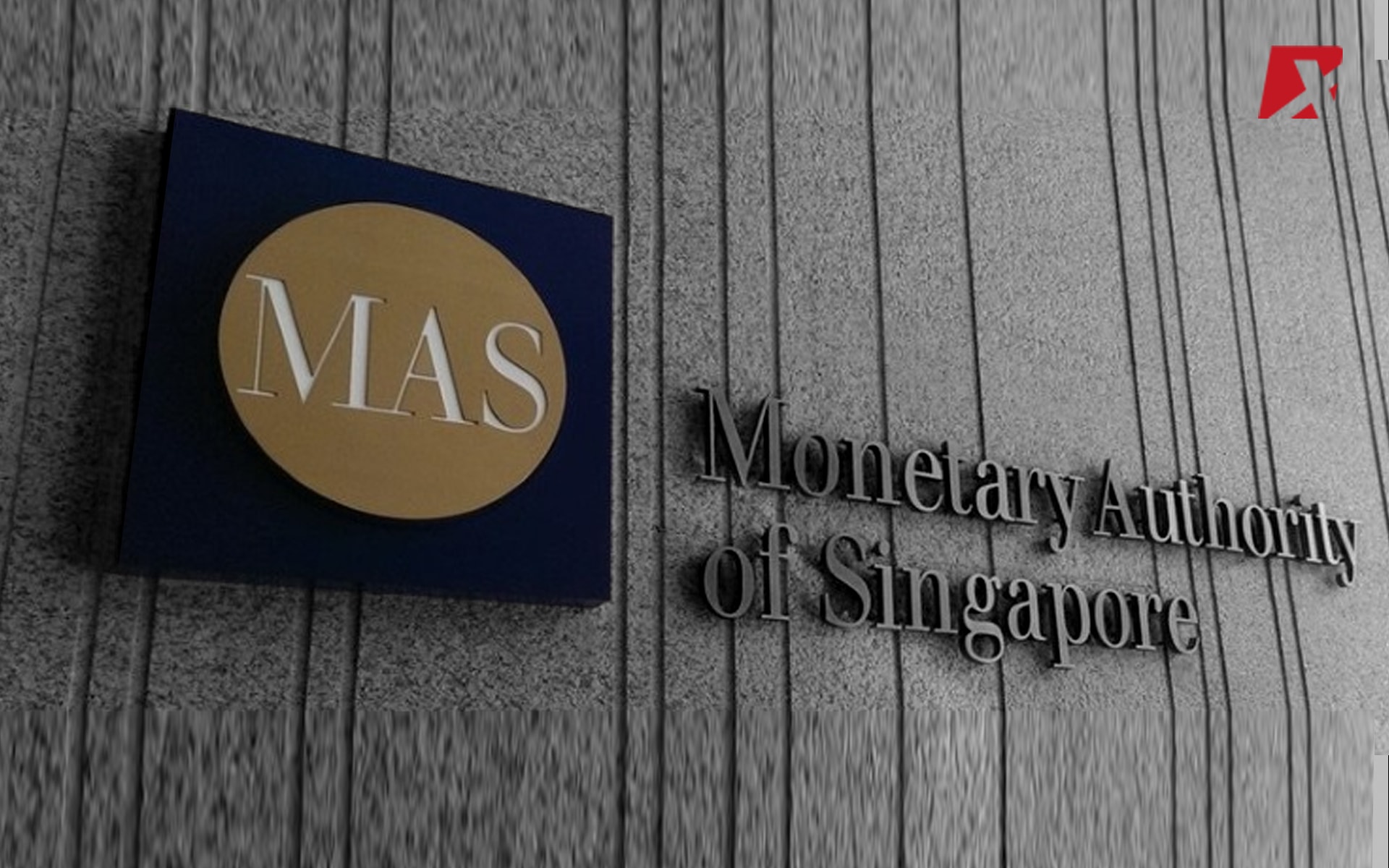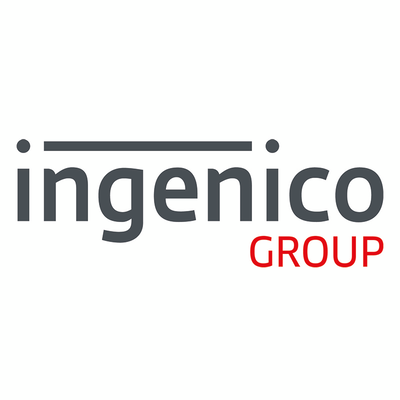Published
- 06:00 am

By 2020, US business to business (B2B) payments are expected to reach $23.1 trillion according to Deloitte. This is driven by cloud technology, which is accelerating the digital transformation of the payments industry, providing customers with a myriad of convenient payment methods.
This shift is occurring because consumers need instant and on-demand access to everything. As incumbent banks have inconsistently delivered in the first instance, fintech firms have entered the market with an intent to disrupt.
According to Deloitte, fintech companies now account for around 36% of personal loans originated in the US by dollar volume. Finextra spoke with Nadav Sharir, VP engineering at Behalf, about the company’s recent report ‘Cutting Edge B2B Payment Trends in 2020’ and how the cloud is driving and accelerating transformation of the payments industry.
The transformation trend
As customers have become accustomed to faster retail payments, there is a demand for parallel convenience in transaction banking and B2B payments. When traditional lenders fail to fulfil client needs, Sharir highlights that cloud technology can support payments digitisation and in turn, improve the payments cycle.
“I believe that the ability to have a speedy cycle to experiment with new channels and capabilities and the ability to quickly measure and expand accordingly are what makes financial institutions that are cloud-based to have a competitive advantage versus companies that are unable to experiment and react so quickly,” he states.
Businesses are under continuous pressure to maintain this “speedy cycle to experiment,” but also simultaneously face challenges with older payment systems.
Fast demand, faster processing
On the retail side, contactless in-store payments are expected to total $2 trillion globally by 2020 according to Juniper Research, and efforts to modernise faster, particularly real-time payments, are increasing. Behalf’s report details how “US payment providers, both large and small, are amplifying the need to balance convenience and speed with security.”
Further to this, fintech companies are using the cloud to remodel products and establish partnerships with third parties to enhance security while also innovating, increasing agility, and experimenting quickly and frequently to evolve their payment offerings.
“B2B companies have the option to integrate financing into their own payment systems, which has drastically influenced B2B buyers to work solely with businesses offering this technology,” the report reads.
Sharir believes that the cloud is an enabler for this demand. “The ability to experiment and to react quickly is key these days. If you can't have this close control and visibility into your services and the ability to quickly measure the success of these experiments, you will be left behind. Everything is about speed.
The ecommerce model
Deloitte research reveals that the B2B ecommerce payments industry is growing faster (10.4% CAGR) than the overall B2B payments market (5.8% CAGR).
E-marketplaces are also appealing to the merchant market for new growth and are a solution for those who cannot build their own e-commerce models. Despite this, cheques are still widely used in the US and research from Deloitte reveals that 17% of deposited cheques are image deposits, 93% of image deposits are by businesses and 71% of businesses can make electronic payments.
“Ecommerce is basically about having the ability to sell at scale with minimum human intervention in the process. This makes a great opportunity for financial services to join this end to end flow and provide their services at scale as well.
“One of the benefits of having a few major platforms of ecommerce is that financial services can easily offer their services to many merchants with minimum effort from the merchant side,” Sharir says.
Planning for success in 2020
The payment trends discussed here are an indication of the removal of traditional hurdles in the space. Today, B2B companies have the option to integrate payment systems in order to serve the customer with a competitive and convenient service.
Behalf advises taking these three steps:
1. Understand the cost and time saving benefits of moving payments to the cloud
2. Evaluate the value of data
3. Prioritise ease of integration
“I believe that having the ability to quickly react to the customer's needs by closely monitoring and measuring their behaviour is the key to success.
“There should also be a great awareness around the architecture and the technology that is being used, as it must be ready for scale. If the experiment will be successful, it will quickly grow to a demand that the technology must be able to handle with no errors and no degradation of the experience.
“There should also be awareness around the methodologies and the culture as the ability to work in such an environment requires a different culture than we used to have before the cloud,” Sharir concludes.
Related News
- 07:00 am

The partnership with the Monetary Authority of Singapore (MAS) allows UBX’s SME platform, Sentro to be integrated in the Business Sans Borders (BSB) system enabling SMEs from both markets to discover cross-border business opportunities. |
SINGAPORE - Media OutReach - 18 November 2019 - Monetary Authority of Singapore (MAS) and Union Bank of the Philippines (UnionBank) through its Fintech subsidiary, UBX signed a Memorandum of Understanding (MoU) at the Singapore Fintech Festival 2019 (SFF) making UnionBank the first Philippine partner for the MAS Business Sans Borders (BSB) project which empower Small and Medium Enterprises (SMEs) globally.
BSB is an open connector of participating SME-centric platforms developed by MAS and the Infocomm Media Development Authority of Singapore (IMDA). By connecting separate platforms, BSB helps SMEs access a much larger combined ecosystem of buyers, sellers, logistics service providers, financing and digital solution providers. BSB uses Artificial Intelligence (AI) to enable SMEs to access and discover fair prices in a larger global marketplace, and easily utilise digital and financial solutions.
Through this partnership, UBX's SME platform Sentro will be integrated into BSB. This will create more growth and expansion opportunities for Philippine SMEs through the member partners of the system.
Sentro is a comprehensive marketplace of products and solutions curated for Philippine SMEs to help them grow their businesses and empower them to go digital.
SMEs from Singapore and other countries participating in the BSB, which are seeking business opportunities in the Philippines, can access tools and services offered on Sentro such as an SME website builder, B2B Marketplace, logistics support, and financing thus enabling SMEs to digitize essential business functions.
The BSB MoU was signed during the Singapore Fintech Festival 2019 by UBX President John Janusczak and MAS Chief Fintech Officer Sopnendu Mohanty, and was witnessed by UnionBank Chairman Justo A. Ortiz, UnionBank President and CEO Edwin R. Bautista, Fintech Group Head Arvie de Vera, and Platforms Head Ramon Duarte.
"In everything we do, whether it is the Singapore Fintech Festival or the BSB, we have one common partner and that is Union Bank of the Philippines," said Sopnendu Mohanty, MAS Chief Fintech Officer. |
Related News
- 05:00 am

ATM cash withdrawals will continue to increase in most countries
After many years of growth, the total number of ATM cash withdrawals worldwide dropped by 3% to 95 billion in 2018, and is forecast to continue falling, according to RBR’s Global ATM Market and Forecasts to 2024 study. This global view masks how use of cash is evolving in many countries, however, with cash withdrawal levels expected to rise in over half of the 63 major markets surveyed by RBR.
In Latin America, where governments and banks are pushing hard to bring financial services to the continent’s large unbanked populations, newly-banked customers will help drive growth in cash withdrawals. Every Latin American market surveyed will witness increasing withdrawal numbers, with growth projected to be fastest in Peru at an average yearly rate of 3%.
The Middle East and Africa and Asia-Pacific will also see rising cash withdrawal volumes in the majority of markets, with financial inclusion measures an important contributing factor, and indeed the fastest growth rate worldwide will be an average annual increase of 9% in Pakistan.
Demand for cash will continue to increase in more than half of Asia-Pacific markets
RBR’s research shows that the total number of ATM cash withdrawals in Asia-Pacific fell by 4% in 2018, and while numbers are forecast to rise in 10 of the 16 Asia-Pacific markets surveyed, the total for the region will continue to drop. Usage of ATMs to access cash will go up in India, which is the region’s second largest market, and remain broadly stable in the third largest, Japan, but cardholders in China will make 5% fewer ATM cash withdrawals year-on-year over the period 2019 to 2024.
The success of both WeChat Pay and AliPay in China means that cashless payments have now infiltrated the daily lives of most Chinese consumers, and the trend there is for people to leave their bankcards and wallets at home in favour of their mobile phones.
Innovative payment methods and developing infrastructures influence demand for cash
While China offers a striking example of recent and rapid change, it is far from the only market where the payments landscape has altered greatly in recent years, with consumers being presented with new ways to make payments. In the UK, for example, card acceptance has increased in rural areas, and contactless technology is a key factor in changing consumer habits. In many of the more established payments markets, demand for cash will fall, with consumers now able to pay for products and services in a number of different ways. In developing markets, however, ATMs and cash will continue to play a crucial role, particularly in financial inclusion strategies.
Rowan Berridge, who led RBR’s research, commented: “Cash has been a vital tool in society for centuries. This is changing, as consumers are continually confronted with innovative payment methods, but the practical benefits of cash and a strong sentimental attachment among certain customer segments will help to keep it relevant”.
Related News
- 15.11.2019 -- 03:56 pm
Financial IT was delighted to speak with Fabrizio Zanollo, Head of International Payments of Form3 during Open Banking Expo 2019 in London. Fabrizio Zanollo underlines the importance of Open Banking as a strategic priority for financial institutions. Furthermore, Fabrizio Zanollo mentioned that Form3 will expand and create strategic partnership outside Europe in 2020.
Other Videos
- 01:00 am

OneSpan™, a global leader in software for trusted identities, e-signatures and secure transactions, today announced that Bank Millennium, a rapidly-growing subsidiary of Banco Comercial Português (Millennium bcp), has deployed Cronto® technology to secure transactions while improving the experience for its corporate banking customers.
Bank Millennium has long prioritized implementing innovative technologies that help improve the customer experience. With innovation and customer experience as drivers, the bank selected OneSpan’s Cronto technology, a patented visual transaction signing solution that uses a graphical colored cryptogram to encrypt transaction details. Implementing Cronto will help the bank provide a simple and convenient experience for customers, and enable functionality including batch transaction signing.
Cronto helps secure transactions by enabling users to check transaction details like amount and account number before signing the transaction. The technology also helps counter trojans such as man-in-the-browser or man-in-the-middle attacks by establishing a secure connection between the device and the bank. Together, these functionalities help Bank Millennium meet the high security and speed requirements required for corporate banking.
"We chose OneSpan's solution together with our corporate customers” said Director of the Electronic Banking Department at Bank Millennium, Halina Karpińska. “After reviewing what was available in the market against our requirements, we consulted with our customers so they could share their opinion. Based on their feedback, we selected OneSpan.”
“Banks are more often considering the importance of customer experience across all banking channels, including corporate banking,” said OneSpan Senior Vice President of Global Sales, Dan Dica. “Bank Millennium has chosen not only to address the needs of its customers but also to help future-proof the corporate banking process with OneSpan.”
Bank Millennium is one of many financial institutions across Europe using Cronto technology to defend against sophisticated attacks, while meeting the PSD2 requirements. OneSpan recently announced successful deployments with Volkswagen Bank and United Bulgarian Bank that use Cronto to securely sign online transactions.
Related News
- 01:00 am

OKEx, the world’s largest futures cryptocurrency exchange, today announced the launch of USDT-Margined Futures. After a successful simulation beginning November 5, 2019, BTC/USDT Futures Contracts officially went live today, November 14, 2019, on the OKEx futures market.
Served as a virtual derivative product that is quoted and settled in the digital token USDT, the BTC/USDT contract has a face value of 0.0001 BTC. The available range of the leverage is 0.01-100x. Traders can long or short a position to profit from the increase or decline of a cryptocurrency’s price respectively. OKEx provides a wider derivative portfolio with a greater variety of underlying currencies and more comprehensive functionality to meet users’ trading requirements.
Key features include:
Leverage Level: 0.01-100x
Face value: 0.0001 BTC
Tick Size: 0.1
Trading Hours: 24/7
Daily Settlement: 08:00 (UTC)
Advantages of USDT Futures Contracts include:
Linear Contract - no need to hedge the margin risk of inverse contracts.
Efficiency and low cost – trade without the hassle of switching between cryptocurrencies.
Comparatively Stable – reduce the risks induced by the volatility of the collateral’s price for future contacts and simpler calculations.
Intuitive Trading Experience – similar to spot trading with the addition of leverage, it is easier for users to master the trading system.
“The simulation of our USDT Futures Contract was very successful, and we received positive feedback from traders in the OKEx community,” said Jay Hao, CEO of OKEx. “At OKEx, we’ve developed a safe, reliable, and stable environment for cryptocurrency trading, and strive to offer new services based on our customers’ interests. We’re excited to add USDT linear contract to our futures market and next on the Perpetual Swap market to meet the interests of our growing international user base.”
Other major cryptocurrencies such as EOS, ETH, LTC, BCH, XRP, ETC, TRX, and BSV on the USDT-margined futures market will soon be launched.
Related News
- 05:00 am

Banking Circle, the ground-breaking provider of financial services infrastructure has been shortlisted for three awards in the upcoming Card & Payments Awards. Banking Circle Virtual IBAN is up for the Best Service to Business award, and together with Ixaris Payments is shortlisted for Best Technology Initiative of the Year. In addition, Ixaris Payments and Banking Circle are shortlisted for Best Achievement in Payments Processing.
Now in their 15th year, the prestigious Card & Payments Awards recognise customer service, excellence and innovation in the card and payments industry. Winners are chosen by an independent panel of expert judges and will be announced at a dinner and ceremony in London on 6th February 2020.
The multi-award-winning Banking Circle Virtual IBAN is a game-changer for the payments sector, providing access to faster, cheaper payments locally and internationally. The unique solution, the first multiple currency virtual IBAN for businesses to be offered by a non-bank, enables financial institutions to give their clients their own virtual IBANs, negating the need to have several banking relationships.
Award-winning travel industry payments optimisation company Ixaris has connected to Banking Circle Virtual IBAN to deliver the travel industry’s most comprehensive payments solution, streamlining payments and tapping new revenue sources in ways previously thought impossible.
Anders la Cour, Co-founder and Chief Executive Officer of Banking Circle commented: “Banking Circle Virtual IBAN has been nominated for, and won, a huge number of awards since it launched in 2017, but each one is a huge honour as well as confirmation that we are delivering a valuable solution. To be shortlisted for three Card & Payment Awards is testament to the hard work and innovative work of our entire team as well as our partners at Ixaris payments.”
Ixaris’ Chief Executive Officer, Aran Brown added: “Our partnership with Banking Circle allows Ixaris to offer an even more competitive edge to our travel customers, not only by optimising payments but by creating a seamless cross border transaction process across more than 25 currencies in 60 countries in a way that banks simply would not allow. Ixaris’ ability to optimise travel payments is now second to none, and these award nominations are confirmation of that.”
Related News
- 05:00 am

Ingenico Group, the global leader in seamless payment, today reported record breaking transaction volumes and payment authorization rates on its most successful Singles Day ever. The company outperformed last year with more than four times as many online transactions as 2018’s event and recorded its highest number of Transactions Per Second (TPS) ever. During the event, Ingenico’s Amsterdam-based ePayments division processed millions of payments seamlessly for leading Chinese-owned websites and marketplaces including AliExpress, Tmall and DHGate.
Analysis of payment data from Ingenico ePayments, one of the first international payment service providers to establish a significant presence in China, shows that the historically Chinese festival is fast becoming a truly global phenomenon. Singles Day is the largest ecommerce shopping day in the world, beating rival peak sales days Black Friday and Cyber Monday and this year’s reported growth was particularly strong in the US and Russia for the company.
One of Ingenico’s focuses over the last few months has been to transform how international ecommerce companies operate in China. By introducing a suite of payment methods that fully caters to the preferences of local consumers, Ingenico can now enable online businesses to gain better access to one of the world’s most significant online markets.
Nick Tubb, VP Commercial Affairs at Ingenico ePayments, said: “Chinese ecommerce continues to grow at an impressive rate and Singles Day is the most extreme example of the opportunity it presents. This event was about overseas customers buying from the Chinese marketplace giants as they expand their international reach, but conversely international online businesses looking to successfully expand into China and tap into the immense customer base there should understand the market is very dynamic and completely unique. With the right partner though, the reward is more than worth it”.
Related News
- 05:00 am

Standard Chartered’s innovation, fintech and ventures unit, SC Ventures, has participated in a Series A funding round for regtech Silent Eight.
The AI-powered anti-money laundering and counter-terrorism financing startup raised an oversubscribed US$6.2 million in the round, with OTB Ventures and Wavemaker Partners also participating.
The capital will be directed at new hires, with plans to double its 50-strong global headcount by the end of Q1 2020.
Standard Chartered is Silent Eight’s largest client, having implemented the sanctions screening process across all business lines in over 40 markets.
Alex Manson, global head of SC Ventures, says: "Silent Eight uses artificial intelligence to improve financial institutions’ name screening process, hence enabling better decisions. By investing in Silent Eight, we will help them scale across our footprint, participate in an area of growth seeing huge investments by financial firms and support our overall commitment to the global fight against financial crime.”
The news comes off the back of an announcement that Standard Chartered is also partnering with Quantexa, a contextual decision intelligence software company. Standard Chartered will deploy the company’s big data analytics and AI platform to conduct complex financial investigations to bolster compliance and risk management processes.
Related News
- 09:00 am

Proposals by seven UK banks to levy a per transaction fee for for certain Faster Payment transactions as a means to provide a long-term, sustainable funding arrangement for the reimbursement of APP scam victims, have been knocked back by governing body Pay.UK following an industry-wide consultation.
Many of the naysayers were concerned that the rule changes would introduce unjustifiable cross-subsidies and may, in fact, have a negative impact on incentives to reduce fraud/fraud costs.
A significant number of this group consider that better incentives for fraud control would be created by a so called “self-funding model” - whereby the cost of customer reimbursement for “no-blame” would be provided by the customer’s own PSP, with that PSP then in the best position to manage the risk of APP fraud to its own business and customers.
Pay.UK has therefore been forced to conclude that there is "no industry consensus" to finance a central fund to reimburse innocent victims of APP fraud.
APP fraudsters have become adept at tricking customers into authorising payments into scam accounts, using a variety of social engineering cons and electronic trickery to dupe their victims into thinking the payouts are legitimate.
The industry has recently implemented a Voluntary Code which agrees to refund all customers who fall for APP scams, provided they did everything expected from under the Code.
To fund this compensation, as an interim arrangement a number of the launch signatories of the Code established a “no blame” fund to provide reimbursements from implementation until a new long-term funding arrangement is in place.
The industry's failure to agree a robust model for refunding customers has been recently criticied by a scathing Treasury Select Committee report, which suggested that the Code should be made compulsory and applied retropectively. MPs have also called for a 24-hour delay on a subset of Faster Payments transactions to give people the chance to consider if they are being defrauded.
In a statement, Pay.UK says that it is "now calling on industry and regulators to work together to find a solution that gives customers peace of mind and meets the needs of different types of payment providers".
Stephen Jones, chief executive of industry lobby UK Finance, expresses disappointment that a solution to the problem has yet to be reached.
He says the industry will continue to call for new legislation to make the Code mandatory and agrees with the Treasury Committee and consumer group Which? that issues of liability and reimbursement should best be addressed by new laws rather than just a voluntary Code alone.
"We urge any future government to work together with the Payment Systems Regulator to put news laws in place quickly that ensure victims are protected and reimbursed,” he adds.









